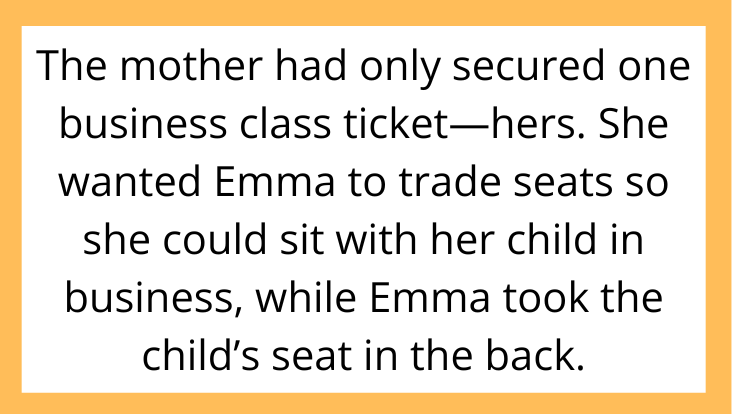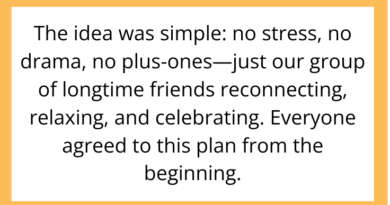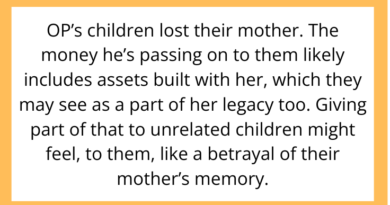AITAH for Not Giving Up My Seat in Business Class to a Child on a Long Flight?
Flying can be stressful enough—but when entitlement meets mid-air, things can really take off. In today’s AITAH scenario, a traveler finds herself in hot water with another family simply because she refused to switch seats. But was she wrong to prioritize her comfort over a stranger’s child?
Let’s buckle up and unpack this high-altitude drama.
The Situation: Solo Upgrade Sparks Turbulence

The original poster (let’s call her Emma) shared her story on Reddit’s r/AITAH community. After years of saving frequent flyer miles, Emma, 32, finally upgraded to business class for a 12-hour international flight. She was excited to enjoy the comfort she had earned—extra legroom, gourmet meals, and some peace and quiet.
But as she settled into her seat, a woman approached her with a request: would she switch seats with her 10-year-old son, who was seated back in economy?
The mother had only secured one business class ticket—hers. She wanted Emma to trade seats so she could sit with her child in business, while Emma took the child’s seat in the back.
Emma politely declined.
The Fallout: From Polite Request to Public Shaming

The mother didn’t take it well.
“She started raising her voice, saying I was heartless,” Emma wrote. “She claimed her son had anxiety and needed to sit with her.”
Flight attendants were called. They offered to reseat the mother and son together—in economy. She refused. Her solution was simple: Emma should give up her seat.
Other passengers started chiming in, some giving Emma dirty looks, others openly criticizing her. Emma stayed firm.
Now she’s asking: AITAH for saying no?
The Arguments: Who’s in the Right?
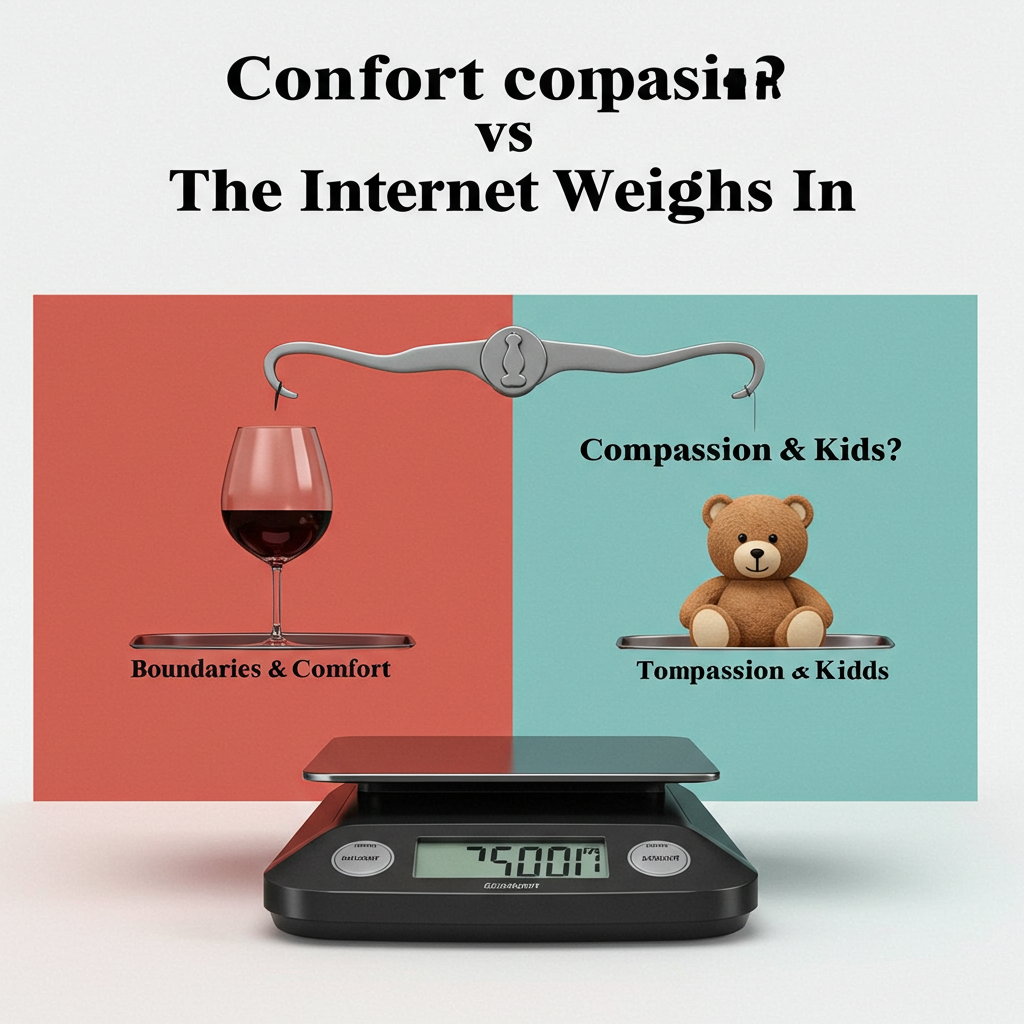
Why Emma Might Be Justified
-
She Paid (or Earned) for Her Seat: Whether through miles or money, Emma earned that business class seat. Giving it up isn’t a small favor—it’s a downgrade on a 12-hour flight.
-
The Mother Created the Situation: Booking only one premium seat and expecting a stranger to solve the problem isn’t Emma’s fault.
-
Boundaries Matter: Emma was under no obligation to sacrifice her comfort, especially on a long journey.
As one Reddit user put it, “People treat boundaries like rudeness when they’re told no. That doesn’t make you wrong.”
Why Some Say Emma Should Have Switched
-
Compassion for a Child: If the child truly had anxiety, some argued it wouldn’t have hurt Emma to help out.
-
It’s Just a Seat: To some, giving up a seat—especially for a child—seemed like the “kinder” option.
-
Public Pressure: A few commenters noted that sometimes, being the “bigger person” means taking the hit.
Still, the overwhelming majority sided with Emma.
Entitlement vs. Empathy: Where’s the Line?

This scenario highlights a growing tension in travel (and life): when do we owe strangers our help, and when is it okay to just say no?
The mother’s demand assumed Emma’s comfort was less important than her own convenience. That’s not empathy—it’s entitlement.
Had she approached kindly, offered an upgrade in return, or planned better, this could have ended differently. But demanding someone sacrifice their experience because you didn’t plan properly isn’t fair.
A Cultural Clash: Child-Centric Expectations

In some cultures, children are seen as community responsibilities. In others, personal space and boundaries are sacred. This conflict often plays out in places like airplanes, restaurants, and weddings.
Emma’s refusal wasn’t about hating kids—it was about holding firm on something she earned. Expecting others to rearrange their lives (or travel plans) for your child is a slippery slope.
The Verdict: Reddit Says Not the Villain

Thousands of users agreed: Emma was not the villain here.
One comment summed it up perfectly:
“You’re not responsible for her poor planning. Sit in your seat and enjoy your wine.”
What Should You Do in a Similar Situation?
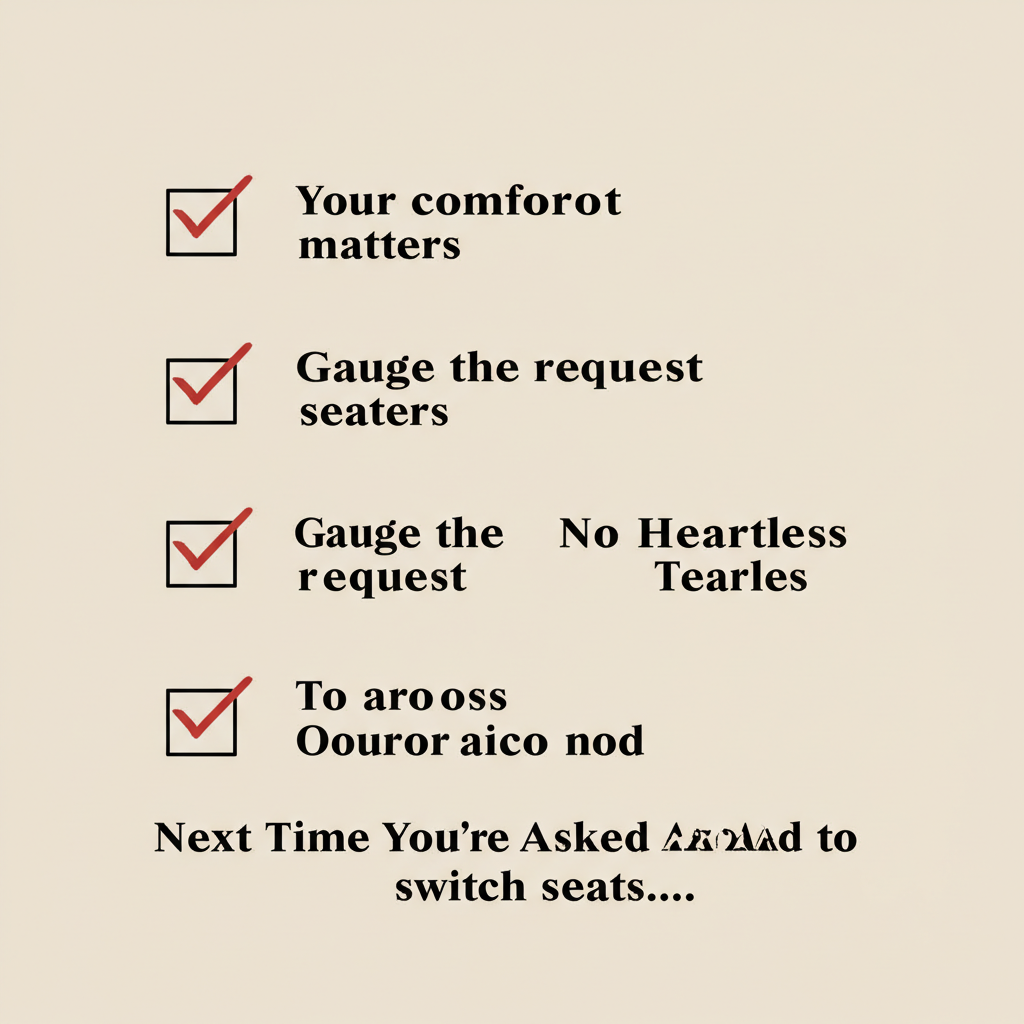
If you’re ever asked to give up a seat—especially one in a higher class—consider:
-
Your comfort and reason for booking it
-
The tone and attitude of the requester
-
Whether there’s a fair exchange or just pressure
Saying no doesn’t make you mean. It makes you someone who values your time, energy, and space.
